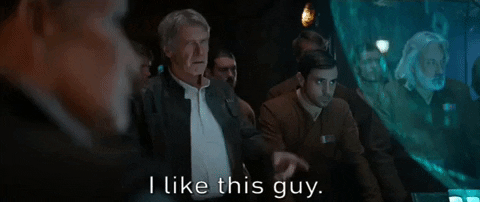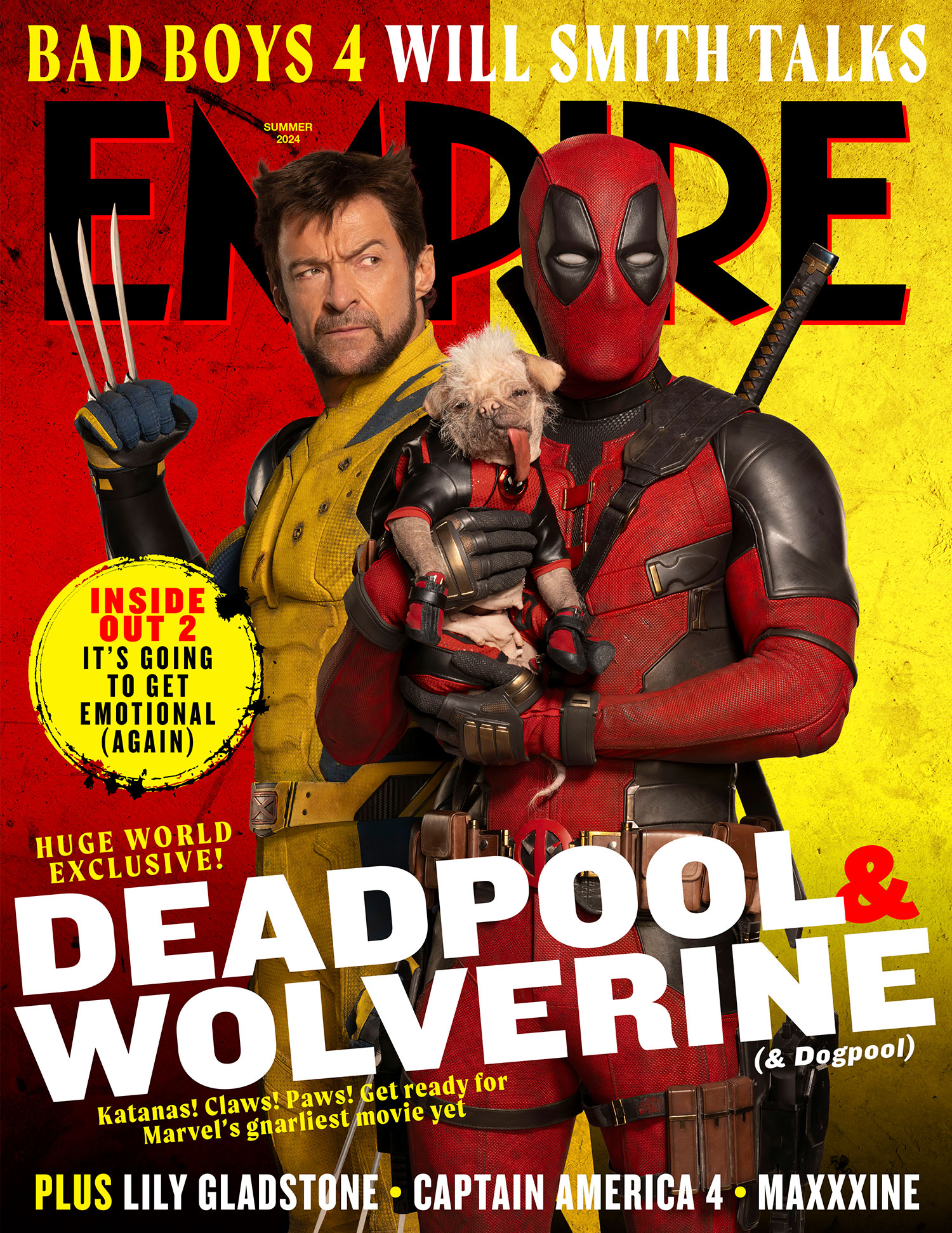I've never really understood what is meant by 'forcing agendas'.
The idea of claiming "forced agendas", or merely "agendas" at all, has become a quick knee-jerk reflex form of accusation, dismissiveness and attack. A weak one at that. When you want to rant the first thing to do is reach for an easy overused label-term that has no discourse value.
Does anyone really believe there is some kind of phantom “agenda” at play? The word itself is used without any context or meaning these days in the case of genre films. The word was merely dropped into the lexicon of fan culture in recent years and used flagrantly by anyone who has a gripe with a film.
Currently the word “agenda” has been devalued and rendered meaningless because it has no effective purpose beyond its accusatory impulse impact. It’s like saying “fake news” whenever you don’t like something. In recent years fans have been using the word “agenda” as a noun (which it is), without any definition, to discredit films, but they’re really making accusations with “agenda” as verb, as an action. They’re talking about the intentions and actions of filmmakers and studios which is nothing more than speculation and accusation, not even true critique of the cinematic product.
So the accusations of “agenda” are thrown around without ever defining what it is in this context of genre films. As if it’s a self-defined term, like a shorthand with clear mass cultural understanding, and we’re all supposed to know what that means. Sorry, but it isn’t! An agenda implies there is some organized policy and applied practice that forcefully (and perhaps secretly) affects and influences something. In fan culture it’s treated like some phantom thread of thinking that alters existing comforts and upends them. Like a sinister harmful force that corrupts otherwise enjoyable films. Reality check: there are no cabals of witches working to re-engineer and dishonour long-established cultural scripts to exert influence over the minds of victimized youth… but you’d sure think there was with the way fans use the word “agenda”. This doesn’t have to be some conspiratorial BS.
Oddly enough, claiming something like "forced agendas" is an agenda in itself, when used to form an unfounded critique. Agendas aren’t new, but the word has certainly been used a lot in recent years when some have chosen to feel personally threatened and harmed by such terms. I believe this is why we often see the words thrown around so flagrantly and are left wondering why we can't understand their use and meaning. I don’t know what forced agendas are and that's because it's a relatively baseless and inconsequential term to the experience of watching a film. Did you have a terrible time watching a movie, and consequently hated it? Yes! Why? Because of the “agenda” that was forced upon me. Show me where the agenda hurt you and I’ll play the tiniest violin for you.
If someone thinks "agendas" are a real thing, then they have to face and accept the fact that agendas have likely always existed and been a problem in films. It's just that the agenda was different, accepted and felt to be benign. Take some examples from the past: for example, every action film, like Predator, with a male lead had an agenda to portray and uphold traditional misogynistic tropes. Was that not a clear agenda? The 1982 “The Thing”, now widely considered to be a classic and peak example of a genre film - is it a horror masterpiece or an insidiously designed patriarch story? Disney had a long history of rewriting classic stories to their own western-centric ideals (can we just call it whitewashing?) but few North American audiences cared to questioned it. No, those became family classics. Careful, because all of this happens if you choose to believe agendas are a real thing and buy into that conspiratorial falsehood. Be prepared to spread that accusation fairly and widely across every film you’ve ever seen, but you may not like the results.
When someone rants about agendas they're no longer talking about the film, but are speculating on the filmmakers' intentions. An agenda being something external to the main story or script that somehow affects, alters and potentially weakens the core plot and storytelling. So agendas are about intent and ultimately a value judgement against the cinematic product. If you decode, interpret and read agendas, you will find them, regardless of the filmmakers' intent or whether they really exist in the film. I don’t think filmmakers are that smart and insidious to construct multi-million dollar cinematic products as tools to inject a cultural purpose (er, agenda) into the public consciousness. Is that what “agendas” are? I think that’s what is being said when someone claims an agenda is employed in the filmmaking. Studios are dumb enough to blow millions on a film project with a bad script to fulfill a projected monetary benefit, but not smart enough to deposit cultural agendas into the social contract with their audience. That’s not what multi-million dollar films are made for. Of course, notwithstanding, some filmmakers are open and upfront about the bold issues they’re trying to address (I think of Jordan Peele here) but that doesn’t constitute an “agenda” in the way some fans are trying to deride it as an accusation.
At one time genre films (sci-fi, horror, action, crime/pulp/noir, and occasionally comic/superhero) had a very small, narrow and highly disregarded reach. They were outsider entertainment, meant for specific audiences. There certainly were exceptions, but for the large part the world of genre films was a disrespected niche. In some way, genre films were films made by fans of the form, with a language that was often insider-like, for peer fans. That all changed over the last 20 years (almost literally around 2005) when comics and films started to share greater kinship. That led to comics and manga/anime influencing and feeding directly into film concepts, and then film treatments feeding back into their literary counterparts. So we saw books and comics written as possible film treatments and films backward-influencing the storytelling techniques of comics, manga and things like video games. A core cohesive was formed and that’s the circle of comic-to-film-back-to-comic…etc. cycle we enjoy today.
All of this led to a healthy (and perhaps sometimes unhealthy) closed circuit of influence across media streams, but certainly a new module of cultural content that resonated with different ideas and concepts. That circuit quickly grew to became a popular module which stretched across audiences, bridging age, gender, race, culture and geography. Everyone could and was participating in this once niche market concept. However, the films weren’t always fair or equal in embracing their audience’s desires. Fan(boy) culture has to understand that genre films exploded in recent years and touched audiences that they weren’t meant to. While they crossed over cultural boundaries to appeal to completely new audiences, but they often failed to represent their respective audiences in the storytelling. Here we were in the late-2000s with a new juggernaut cinematic proposal in front of us, with huge monetary gains, in completely new consumptive markets. (Incidentally, remember when some of the early waves of recent superhero films that were written and marketed as summer date movies? I do!)
Genre films don’t belong to one exclusive insider audience any longer. When genre films broke into the near-billion dollar sales markets they began to speak to a wider audience base, and a widely diverse audience experience across the entire world. New markets and box office numbers that you can’t argue against. The new diverse market created a demand that fed back into the creation of the films. For example, the first wave was with Asian kids in their markets (which constituted a huge portion of the new international market sales) who simply desired to see themselves and their stories in these film projects. Similarly, young women across various cultures developed a new identification with genre films. Something that wasn’t there in significant numbers until the late-90s. So we had women, fans of different cultures and self-identification consuming genre films in new large numbers. People wanted to see themselves, their experiences and their stories in the product. That doesn’t mean anyone demanded, petitioned or forced an “agenda” to alter genre films. It simply showed that there were other stories that could and should be told to the eager and consumptive audience. Women and writers of other races and self-identification had been telling their stories for decades and now there was an entry point of desire for them to contribute to the (film) industry. That’s what we’re seeing now, but sadly some fans feel threatened by it. Remember when I mentioned how forms of media had been feeding into each other to enrich cinema and back onto themselves? Now you have it here, with diverse stories. The cohesive circuit simply took in new voices.
When someone rants about phantom agendas I want to ask them what their experience of genre films (genre culture, in general) has been over the past 40+ years. Has it been one of a few typical and archetypical forms of storytelling? Has it been a reliable and familiar dominant narrative? Is that not an agenda at work? Perhaps it’s time to grow up and accept that there are other forms of narrative, new and potentially exciting, at the least challenging and ground-breaking forms of narrative that speak to various audiences. Not every film is singularly made for one viewer. There will be unfamiliar ideas and concepts proposed, especially in this new age of genre fiction and cinematic storytelling. However, there is no “agenda” in that, but simply an expression from diverse writers and storytellers. That shouldn’t be such a tough reality to have to content with. Especially when these films are optional entertainment; optional but often meaningful for some audiences. Relax and enjoy the films, or hate them if you choose, but don’t cry about conspiracies of agendas where none exist. Genre films have for the most part been quite average or terrible - remember, these were mostly b-movies at one time - so expect to see more bad than good, regardless of who makes them.





















